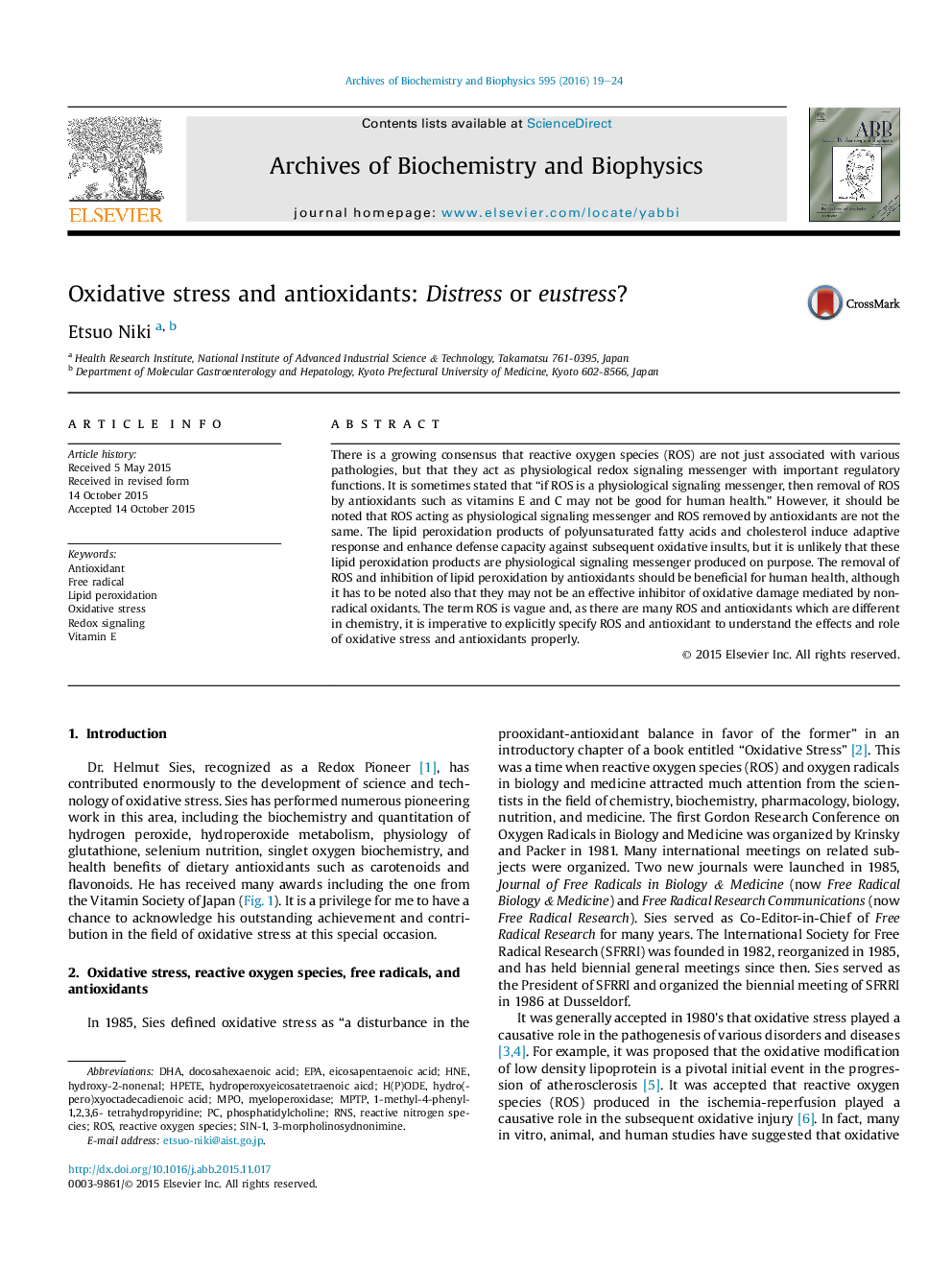| Article ID | Journal | Published Year | Pages | File Type |
|---|---|---|---|---|
| 8289376 | Archives of Biochemistry and Biophysics | 2016 | 6 Pages |
Abstract
There is a growing consensus that reactive oxygen species (ROS) are not just associated with various pathologies, but that they act as physiological redox signaling messenger with important regulatory functions. It is sometimes stated that “if ROS is a physiological signaling messenger, then removal of ROS by antioxidants such as vitamins E and C may not be good for human health.” However, it should be noted that ROS acting as physiological signaling messenger and ROS removed by antioxidants are not the same. The lipid peroxidation products of polyunsaturated fatty acids and cholesterol induce adaptive response and enhance defense capacity against subsequent oxidative insults, but it is unlikely that these lipid peroxidation products are physiological signaling messenger produced on purpose. The removal of ROS and inhibition of lipid peroxidation by antioxidants should be beneficial for human health, although it has to be noted also that they may not be an effective inhibitor of oxidative damage mediated by non-radical oxidants. The term ROS is vague and, as there are many ROS and antioxidants which are different in chemistry, it is imperative to explicitly specify ROS and antioxidant to understand the effects and role of oxidative stress and antioxidants properly.
Keywords
Related Topics
Life Sciences
Biochemistry, Genetics and Molecular Biology
Biochemistry
Authors
Etsuo Niki,
